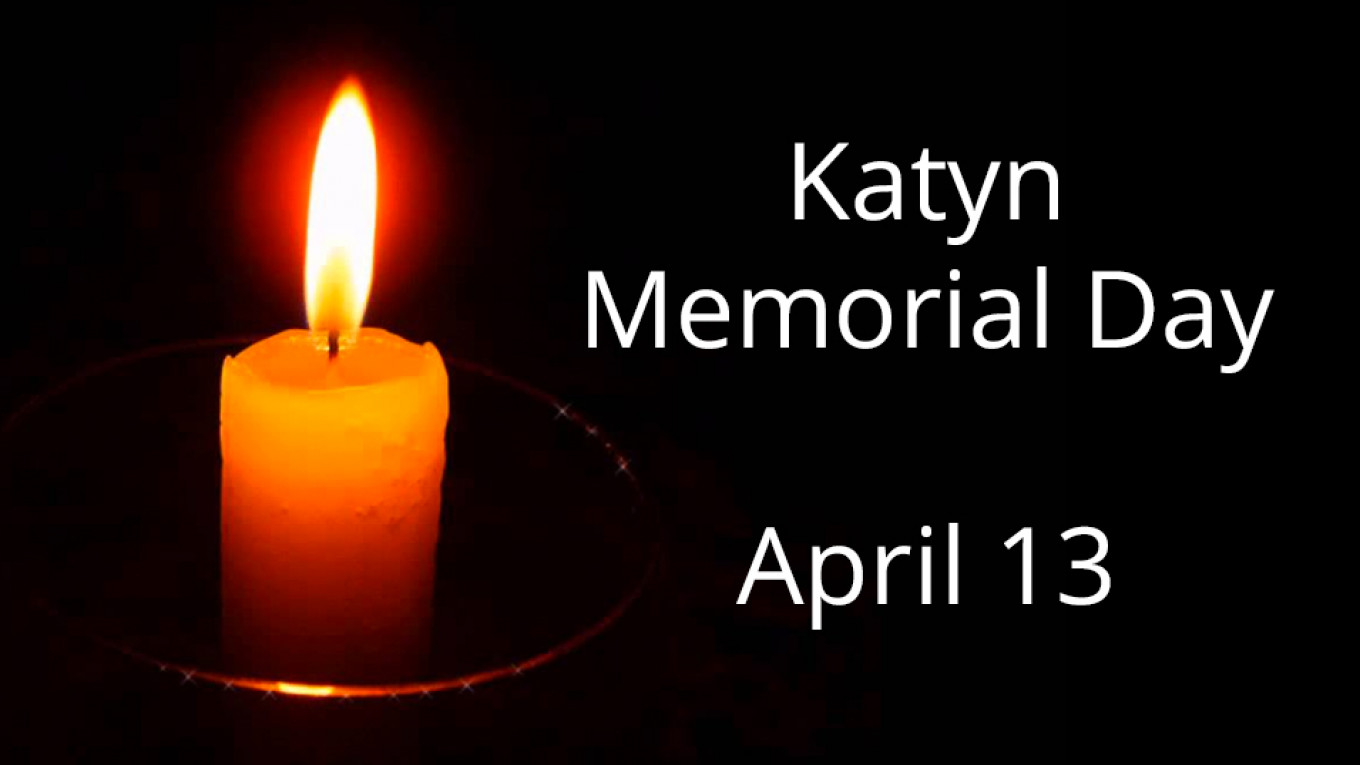On this day, on April 13, 1943, the German army under Adolf Hitler announced the discovery of mass graves near the village of Katyn not far from Smolensk. The Nazis accused the Soviet Union of the mass murder of Polish officers.
For almost five decades, the Soviet Union denied all responsibility, insisting that the murders were committed by the German army.
But on this day, April 13, 1990, the Soviet government issued a statement on TASS accepting responsibility for the murders of nearly 22,000 Polish army and police officers and members of the intelligentsia. The statement expressed the government’s deep regret and called the massacre “one of the most heinous crimes of Stalinism.”
The officers and civilians had been arrested when the Soviet Union invaded Poland in 1939 and kept in several Soviet prisons. In March 1940 Lavrenty Beria, head of the NKVD (precursor to the KGB) made the case in a note to Josef Stalin that the Polish prisoners were conducting “anti-Soviet agitation” in prisons and represented a threat to the regime. On March 5, 1940, a document signed by Josef Stalin and members of the Politburo sentenced them to death.
The killings took place in April and May, 1940.
Although there have been many attempts by Russian public figures to disprove the admission of guilt, Vladimir Putin, Dmitry Medvedev and the Russian government have continued to condemn the murders as a heinous act of the Stalinist regime.
On April 10, 2010 a military plane carrying the Polish President Lech Kaczynski and his wife Maria, a group of prominent Polish politicians and clerics, and virtually the entire military high command crashed on landing at the Smolensk airport on a visit to commemorate the 70th anniversary of the massacre. All 96 people on board were killed.
April 13 is marked around the world as Katyn Memorial Day.
A Message from The Moscow Times:
Dear readers,
We are facing unprecedented challenges. Russia's Prosecutor General's Office has designated The Moscow Times as an "undesirable" organization, criminalizing our work and putting our staff at risk of prosecution. This follows our earlier unjust labeling as a "foreign agent."
These actions are direct attempts to silence independent journalism in Russia. The authorities claim our work "discredits the decisions of the Russian leadership." We see things differently: we strive to provide accurate, unbiased reporting on Russia.
We, the journalists of The Moscow Times, refuse to be silenced. But to continue our work, we need your help.
Your support, no matter how small, makes a world of difference. If you can, please support us monthly starting from just $2. It's quick to set up, and every contribution makes a significant impact.
By supporting The Moscow Times, you're defending open, independent journalism in the face of repression. Thank you for standing with us.
Remind me later.






